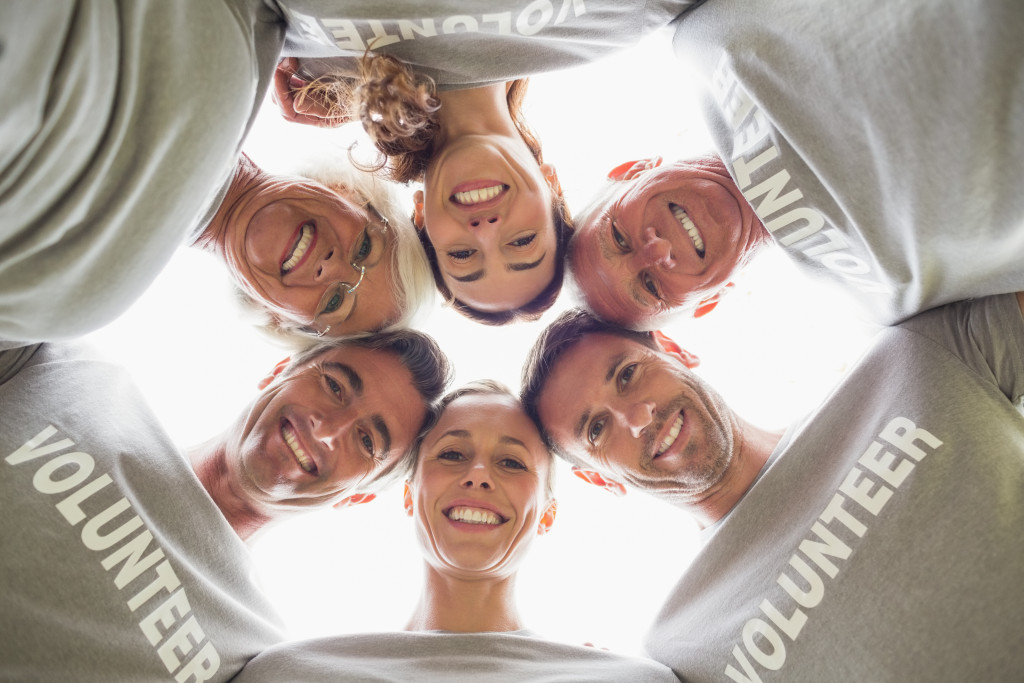Helping each other is second nature to humans. Humanity has progressed the way it did mainly because of its ability to lift and push each other beyond what’s humanly possible. And during a global pandemic like what the world’s experiencing now, helping each other has gone to a new level of importance. Whether it’s due to that nagging social responsibility you feel or because of the satisfaction you get after a long day of charitable deeds, lending a hand to those in need can give a certain kind of fulfillment you can’t get anywhere else.
To help you help more people, from your close-knit community to a more global scale, here are the six steps you need to follow to build a successful community outreach program.
-
Do your research.
Remember that it’s not about what you want to give but what the people need to receive. Doing your homework is essential in building a successful charitable event. You have to find out what the people truly need. Donating food will always be welcomed, but there are more ways to help than that. The identity of your nonprofit and your programs should revolve around the demand in the area.Check the crime rate in the area. Domestic abuse is one of the most prevalent problems America is facing today. Giving the community access to divorce attorneys, family lawyers, and social workers can be a great way to help those who are silently enduring their pain. Providing more access to mental healthcare can also impact more lives than you can imagine. From students to retirees, mental health awareness is of utmost importance. You can also focus on providing alternative sources of income to the locals. The key is to find out the most pressing concerns and provide multiple solutions that can help them live better and more comfortable lives.
-
Focus on one goal and practice discipline in pursuing it.
Everyone wants to do everything they can to help but juggling more goals can easily get out of hand. And the logistic chaos that it creates can prove more counterproductive.There will always be more opportunities to help. Stay in one lane and make sure you reach your goal most efficiently and effectively. This will also leave more chances for other groups to help. And in the perspective of those in need, getting the fully focused help of multiple groups can be better than getting many half-baked efforts of one.
-
Gather support.
You don’t have to do this alone. And quite frankly, you shouldn’t. Getting the support of local and big businesses can help elevate the quantity of service you can give. Multiple companies and organizations can help provide financial and logistic support.Social media can also be a good platform to raise awareness and acquire help from multiple people across the globe. Keep in mind that the priority is the people in need. Getting as much help as you can ensures a better experience for both you and them.
-
Aim to educate.
When spearheading an outreach program, getting information across to the party in need can boost their lives’ improvement. If your focus is providing medical support, making sure they know health protocols and various means to keep themselves safe is crucial to the project’s success. Prevention is better than cure, after all.The same can be said for financial, charitable events. Instead of just giving donations, helping people learn multiple income-generating alternatives can be an ideal plan for long-term prosperity.
-
Get your performance assessed.
Knowing the strengths and weaknesses of your projects and team can help improve your drive. If research is essential in the conception of your ideas, then research is equally important in strengthening the ones you already have. Provide means for real-time and long-term feedback. The best way to have tailor-made projects that can be used in multiple areas on multiple occasions is by knowing where you can and should adjust.
-
Don’t forget the follow-up.
It doesn’t end with just one activity. It’s not a click-and-bang photo-op that you would do to get more social media followers. This isn’t a one-time thing.Along with getting feedback and assessing the long-term impacts of your projects after a few months, you should also consider conducting follow-up operations. If your project is medically-focused, getting the people regular checkups would be more beneficial. Remember, consistency is the key in this world.
The bottom line

If you want to help, there are millions of ways to do so. Just remember to do your research first, know your priorities, gather financial and logistic support, ensure that you spread awareness, assess and improve your performance, and always be consistent. And keep in mind that your initiative matters. Help make the world a better place, one household at a time.




